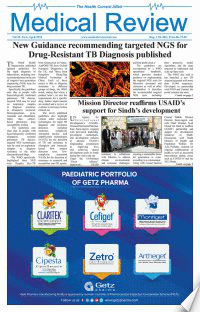A mission of the United Nations Programme on HIV/AIDS (UNAIDS) which met various stakeholders in the city recently has stressed the need for high-level advocacy and timely actions including release of adequate funds by the government to get rid of the AIDS epidemic in Karachi and other big cities of Sindh and Pakistan.
The prevalence of HIV/AIDS in high-risk groups like the injectable drug users and sex workers is now a disturbing reality in Sindh and Pakistan that can be prevented from further scaling up only with increased sensitisation of the people in question, their family members, the society and due mobilisation of resources. We need to avert the transmission of HIV from key people to general people, otherwise Pakistan could face a disastrous public health situation, the mission warned.
Maintaining that UNAIDS mission in their conversation with the parliamentarians, government authorities, officers and religious leaders suggested a proactive, unified and timely action, Dr. Mamadou urged the media in the country to play a role in dissemination of information among people regarding HIV/AIDS, its modes of transmission, prevention and treatment and ending the stigma observed, largely in the case of HIV/Aids patients and their families.
Dr. Mamadou LSakho said that the massive spread of the dreaded HIV infection in African countries could be attributed to poverty and unsafe sex, while in Pakistan people are exposed to the disease through needle sharing while injecting drugs. Lack of use of personal syringe and exchanging sex for drugs or money, poses a huge challenge for HIV/AIDS workers in the country.
Present on the occasion, Chief of the Sindh AIDS Control Programme (SACP), Dr. Muhammad Yunis Chachar said that the government was very much committed to the cause of public health and had financed various programmes to create awareness about the disease and access the groups vulnerable to the infections or those undergoing HIV treatment.
“We have now a new PC-1 for the aids control programme, which has been approved by the competent forum and is making efforts to reach the hidden cases of HIV/Aids, set up more treatment centres, along with district family health and information centres”, he added.
UNAIDS in collaboration with Sindh AIDS Control Programme undertook a detailed mission from April 25 to 28 to have high-level advocacy on fast track activities in Karachi. During its stay in the city, the UNAIDS team, including Dr. Rajwal Khan, strategic information adviser of UNAIDS in Pakistan, Dr. Sufia Furqan, an expert from the National AIDS Control Programme and Dr. Fehmida Iqbal from UNAIDS, had consultative meetings and interactions with the provincial health department officials, parliamentarians, speaker of the Sindh Assembly, health care providers, media and civil society organisations.
Dr. Qamar Abbas, an HIV/AIDS specialist associated with the Sindh Health Department, who has also served at the SACP for a long period, and Dr. Siknadar Iqbal, a Senior SACP Officer also joined the mission during its meeting with the dignitaries.
UNAIDS during the mission also held discussions on implementation of the HIV Act in Sindh, barriers and challenges faced by key populations, introduction of zero stigma and discrimination, strengthening of capacity of health care providers who respond to health care needs of key populations, sensitisation of media and its key focal points on HIV sensitive reporting and launch of a media network on HIV to raise awareness in print and electronic media, said a source privy to the mission.
In the meantime, deputy mayor of Karachi, Dr. Arshad Abdullah Vohra in his meeting with the UNAIDS team at his office said that Karachi Metropolitan Corporation will take all the measures to save its citizens from HIV infections, with the cooperation of the international health agencies. He thanked the UNAIDS for making Karachi, a part of its programme and Aids-related initiatives.


